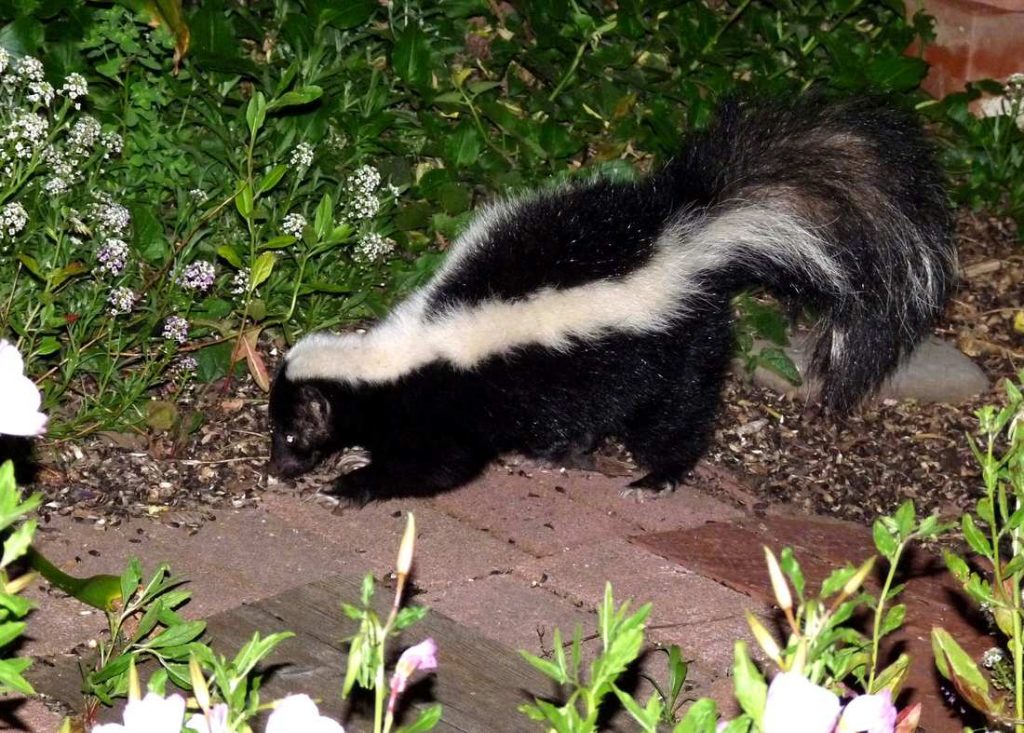
Skunks have a voracious appetite for many of the same foods that we like, and this is especially-true when it comes to crops growing in our homestead and backyard gardens. It only takes a few skunks to devastate crops, and aside from physically relocating or killing them, there’s not much that can be done to deter them from foraging for easy meals. However, there are a few techniques that have given people varying-degrees of success, and they may help you to keep skunks at bay as well.
Barriers
While there may not be much that we can do to prevent skunks from coming onto our property, we can make it as difficult as possible to get at things that are attracting them. Make sure that your garbage is in a closed bin, and that it is far from the garden. Erect a fence with chicken wire, and bury it a few inches into the soil to make it difficult for skunks to burrow and get at crops. Use or make some kind of bin or container for your compost pile to keep them out. Skunks are opportunistic by nature, and they will tend to move on to easier targets if you make sources difficult for them to access.
You can also look for their dens and block the entrances with anything from bricks to wood or dirt as well. Just be careful that you close it off when nobody’s home. While this may not eliminate the problem, it can make it more manageable.
Light
Skunks are nocturnal creatures by nature, and their eyes are extremely-sensitive to light. Consider placing some motion-sensor lights around the yard or in areas where you notice heavy skunk traffic. You can also shine a flashlight in their direction to cause them to scurry-off as well. Chances are that they’ll flee the area if light becomes a persistent problem. While it’s true that some skunks can adapt to the light, and others will find alternate routes, most of them will decide to forage somewhere else altogether.
Scents
Skunks are known to dislike a number of strong scents, and their mere presence may be enough to drive them from the area altogether. One is ammonia, and you can apply it directly to the border of your garden or other areas where skunks are known to frequent. You can also place some ammonia in little bowls and arrange them around the yard as well. The only drawback to ammonia is that it dissipates quickly, and it will need to be re-applied every other day or so.
Predator urine is a better option because it will scare the skunk from the area. You can purchase the urine or collect your own, and it has a little more staying power than ammonia. However, you will need to frequently re-apply the urine in order to keep the scent strong and fresh as well.
Cayenne Pepper
Cayenne pepper has been used for generations as a way to repel skunks, and it is surprisingly-effective in many situations. Just sprinkle the pepper in areas where skunks are a problem, and chances are that they will avoid it at all costs. You can also make a spray and apply it to plants, shrubs, fencing or in dens as well. Again, the pepper will need to be re-applied on a regular basis to be effective in the long run, particularly after it rains.
While any of these tricks can be useful, you’ll probably have the most success when you use them together. Take some time to learn about these and other skunk-control techniques, and do some experimentation until you experience the best results.
